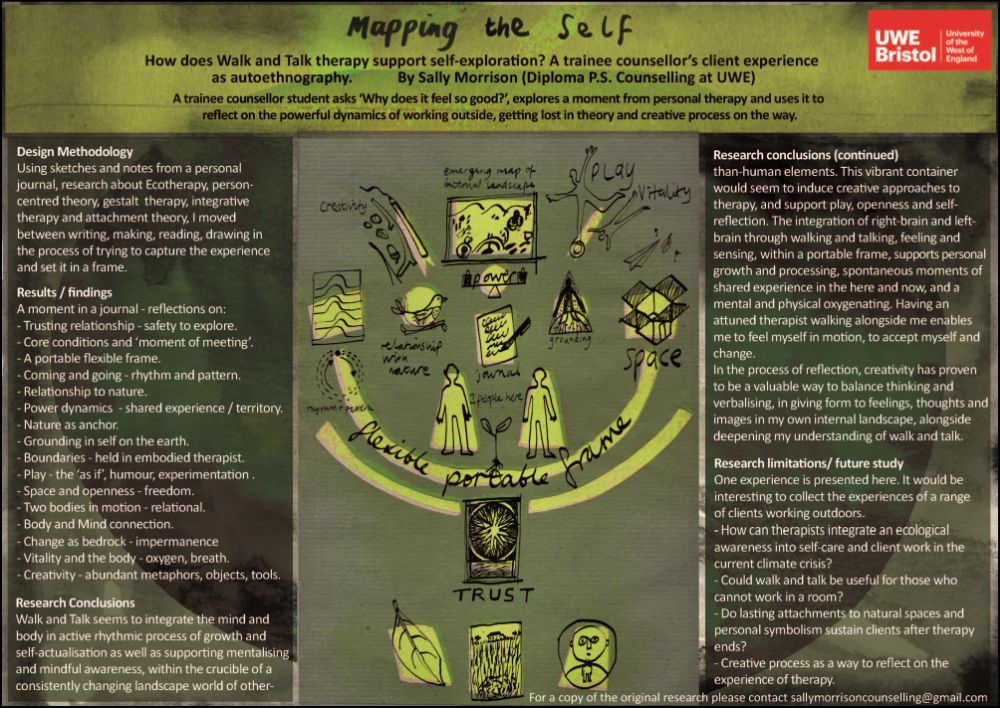
Aims or purpose
An autoethnographic study exploring aspects of working relationally in nature – why does it feel so good? A trainee counsellor student explores a moment from personal therapy and uses it to reflect on the powerful dynamics of working psychotherapeutically outside, getting lost in theory and creative process on the way’ I aimed to identify, through triangulation of personal experience, theory and creative process, why walk and talk therapy might feel so good for me as a client.
Design and methodology
I created an autoethnographic investigation to explore my experience of walk and talk. I used journaling, writing, drawing, printing and making objects to investigate what I was experiencing alongside reading theoretical research about walk and talk, nature therapy, play, body-mind connection, creativity, boundaries and the potential challenges involved in working outdoors.
Ethical approval
University of the West of England
Results and findings
I identified key points including the health-giving properties of walking outdoors, the focus on breath and grounding, the impact of the environment ON the work…factors outside our control, the impact of a flexible frame for counselling, changes in nature supporting changes in the self, attachment to nature, relationship to the wider world, the mind and body, sensory input, pattern making and play. Working outdoors is a way to integrate mind and body, left and right brain in an experience that is playful, creative and also relational. I also identified the importance of trust in working this way and the value of core conditions in providing a platform for exploration.
Research limitations
The findings are individual and personal, but it might be that other clients might find this beneficial. I can only speak to my own unique experience and wider study might be helpful to understand implications for other clients.
Conclusions and implications
Perhaps sometimes the room is not the best place to work…can therapists find the robustness and flexibility within themselves to support this work outdoors? It would be interesting to read more clients’ accounts of working outdoors. It’s powerful to work outside with a counsellor who can play, in the here and now, walk alongside clients emotionally and physically. Who might benefit from this in future?
Views expressed in this article are the views of the writer and not necessarily the views of BACP. Publication does not imply endorsement of the writer’s views. Reasonable care has been taken to avoid errors but no liability will be accepted for any errors that may occur.
